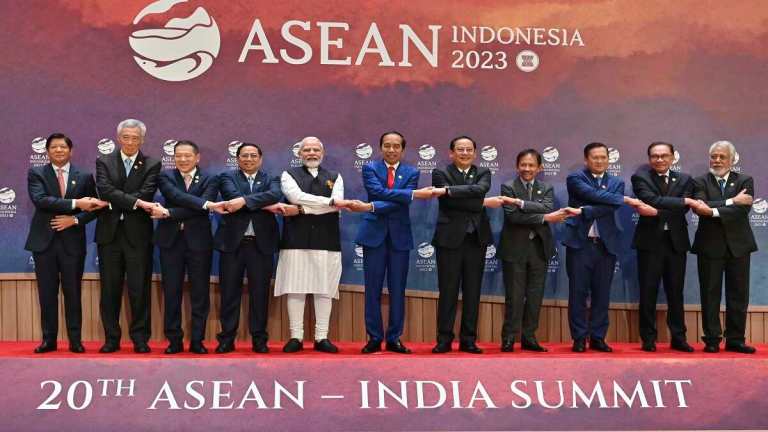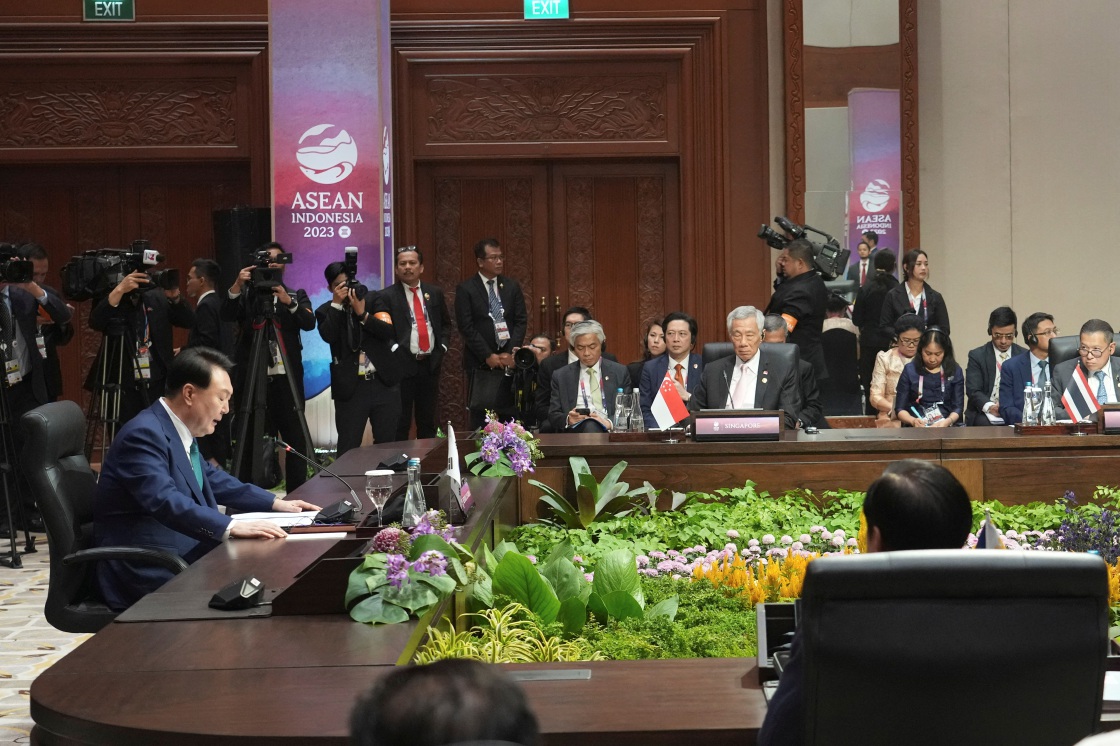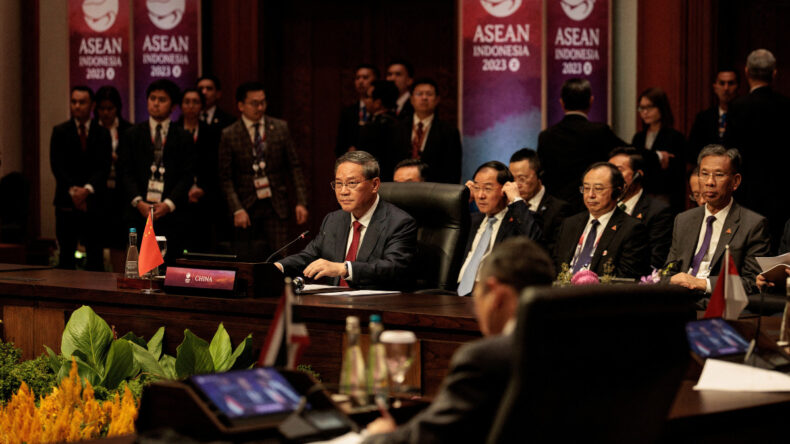Southeast Asians are wary of new conflicts due to big powers joining the ASEAN Summit. As world leaders gathered on Thursday for a summit sponsored by Southeast Asia to focus on security and commerce against the backdrop of escalating big-power rivalries, Indonesian President Joko Widodo urged them to ease tensions.
Along with leaders of regional allies Japan, South Korea, India, Australia, and others, U.S. Vice President Kamala Harris, Chinese Premier Li Qiang, and Russian Foreign Minister Sergei Lavrov attended the ASEAN conference in the Indonesian capital.
The discussions on topics ranging from trade and technology to China’s growing aggressiveness in the South China Sea, the Myanmar junta’s refusal to work with ASEAN on a peace plan, and suspicions that North Korea intends to supply Russia with weapons have been accompanied by an underlying tension.
As head of the 10-nation ASEAN bloc this year, Widodo remarked at the start of the East Asia Summit, “We all have a responsibility to not create new conflict, new tension, or new war, and at the same time we also have a responsibility to reduce tensions.”
According to Indonesia, the forum should promote cooperation rather than escalating tensions.
This week, Indonesia and other Southeast Asian nations issued a warning against “destructive” rivalries between big powers in response to impending tensions between the United States and China, which they claim puts them in danger.

China warns against “new Cold War”
China’s Li cautioned nations on Wednesday against igniting a “new Cold War” and advised them against choosing sides in any confrontation. Speaking at the Association of Southeast Asian Nations (ASEAN) conference alongside China, Japan, and South Korea, Li emphasised the need for nations to “appropriately handle differences and disputes”.
Li addressed the audience urging them to reject taking sides, bloc warfare, and a return to the Cold War. Along with Li, U.S. Vice President Kamala Harris, and leaders of other partner countries like Japan, South Korea, Australia, and India, ASEAN is also holding more in-depth discussions with them. Asean has previously advised against becoming entangled in disputes between big powers.
Neither Chinese President Xi Jinping nor American Vice President Joe Biden are present at the summit.
Concern over China’s escalating assertiveness in the South China Sea, a crucial trade route where several ASEAN nations have competing claims with China, is a top concern at the gatherings in the Indonesian capital Jakarta.
According to Indonesia’s Foreign Minister Retno Marsudi, the ASEAN chair, ASEAN this week discussed with China advancing negotiations on a long-discussed code of conduct for the waterway.
ASEAN Summit: The Myanmar Crisis
On Wednesday, Li from China and Kishida from Japan had a brief meeting outside of the summit and talked about Japan’s decision to dump treated radioactive water from the Fukushima nuclear facility into the sea.
In retaliation, a furious China has put a ban on all imports of aquatic life from Japan.
ASEAN leaders are also attempting to resolve the issue in Myanmar, a member of their association that has been plagued by violence ever since the military overthrew an Aung San Suu Kyi-led administration in 2021.
As a result of ASEAN’s poor attempts to promote peace in Myanmar, concerns have been raised regarding the group’s political diversity.

ASEAN leaders expressed “grave concern” earlier in the week over the lack of advancement on their peace plan, but Myanmar said it rejected the statement and that ASEAN should uphold its policy of not meddling in one another’s internal affairs.
Mohammad Shahabuddin, the president of Bangladesh, urged swift action to end the unrest in neighbouring Myanmar. After fleeing a military-led assault in Buddhist-majority Myanmar in 2017, around one million Rohingya Muslims now reside in camps in Bangladesh.
At a conference with ASEAN and other nations, he declared, “It is the collective responsibility of the international community to find the sustainable solution to this crisis.”
U.N. Secretary-General António Guterres reiterated calls for the junta to free all political prisoners and claimed Myanmar was experiencing a “worsening political, humanitarian, and human rights” scenario.













